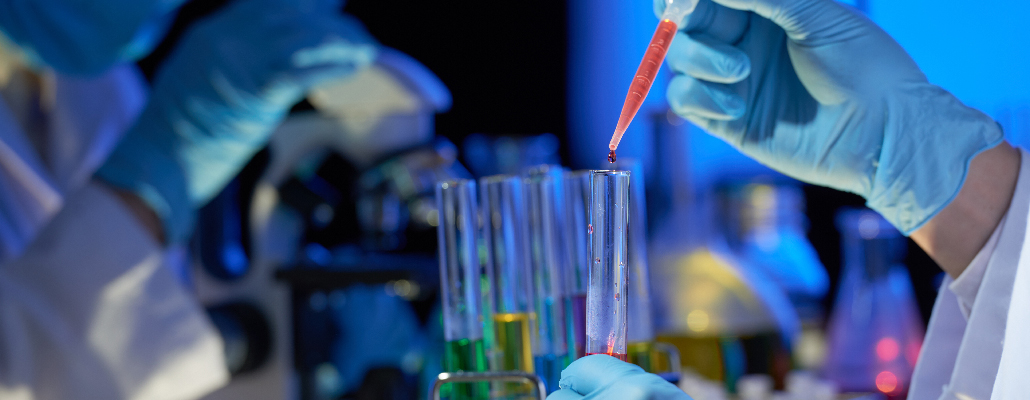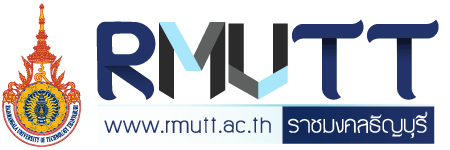Master of Science Program in Applied Chemistry
Science and Technology
Overview
The Master’s degree of science in Applied Chemistry is a research-intensive graduate program focused on intellectual development and creation of novel technology or innovation for sustainable change in three fields of specialization:1.Materials Chemistry and Nanotechnology:
-
- Functional Polymers, Polymerization in aqueous dispersed systems
- Polymer Microcapsules and Microspheres, Biopolymer
- Photoelectrocatalysis, Thin-film fabrication, Energy and Environmental application
- Photocatalytic nanomaterials
- Theoretical and Computational Chemistry, Heterogeneous Catalysis
-
- Chemical sensor, Biosensor, Electrochemistry, Nanomaterials
- Wastewater Treatment
- Sample preparation, Environmental and Analytical chemistry, Chromatography
-
- Plant biochemistry, Bio-active compounds, Protein structure and functional
- Biochemistry, Proteomics and Protein mechanism
- Fluorescence sensors, Nanomaterials, and Natural product
Duration of Course 2 years
Language of Instruction: Thai/English
Entry requirements:
- To hold a Bachelor's degree in the field of Chemistry or related from an accredited institution comparable to the degree offered at RMUTT, or expected to acquire such a degree before the RMUTT enrollment date.
- To have an excellent academic record from reputable universities.
- To have the aim, satisfactory knowledge and research skill to work in the research field of this program
- To have a high English proficiency (TOEIC ≥ 650)
- Resume
- Original bachelor's degree academic transcripts in English (Include date of issue) or their photocopies verified and bears FRESH school stamp by the graduated university or by a notary public. The transcript must contain a list of all the courses studied each year including the marks or grades for each course and GPA. If the applicants are still studying a bachelor's degree, providing a temporary academic transcript.
- Briefly the research project in English and list of publications (if available).
- Research proposal (1-2 page in length): A detail of the research plan related to interesting research fields and topics of the program.
Course Content
Total of Credit 36 CreditProgram Structure
1. Compulsory Course (9 credits)
| 09-211-601 | Research Methodology in Applied Chemistry | 3(3-0-6) |
| 09-211-602 | Advanced Instruments for Analysis | 4(2-6-6) |
| 09-211-603 | Seminar 1 | 1(0-3-1) |
| 09-211-701 | Seminar 2 | 1(0-3-1) |
2. Elective Courses (15 credits)
Each field select at least one course of the other fields
2.1 Materials Chemistry and Nanotechnology
2.2 Environmental and Analytical Chemistry
2.3 Biochemicals
2.1 Materials Chemistry and Nanotechnology
| 09-212-601 | Polymer Synthesis and Characterizations | 3(3-0-6) |
| 09-212-603 | Semiconductor and Photocatalysis | 3(3-0-6) |
| 09-212-606 | Polymerization in Dispersed Systems | 3(3-0-6) |
| 09-212-607 | Nanoscience and Nanotechnology | 3(3-0-6) |
| 09-212-701 | Advanced Organic Materials | 3(3-0-6) |
| 09-212-702 | Thin Film Technology | 3(3-0-6) |
| 09-212-703 | Biopolymer | 3(3-0-6) |
| 09-212-707 | Computational Chemistry | 3(2-3-5) |
| 09-213-601 | Trace Analysis | 3(3-0-6) |
| 09-213-602 | Analytical Method Validation | 3(3-0-6) |
| 09-213-603 | Waste Reduction and Recycling Technology | 3(3-0-6) |
| 09-213-605 | Applications of Separation Technique | 3(3-0-6) |
| 09-213-701 | Green Chemistry | 3(1-6-4) |
| 09-213-702 | Anaerobic Biotechnology for Bioenergy Production | 3(3-0-6) |
| 09-213-703 | Biosensor and Applications | 3(3-0-6) |
| 09-213-704 | Selected Topics in Environmental and Analytical Chemistry | 3(3-0-6) |
| 09-214-601 | Enzymology | 3(3-0-6) |
| 09-214-602 | Bioorganic Chemistry | 3(3-0-6) |
| 09-214-603 | Cosmetic Technology | 3(3-0-6) |
| 09-214-701 | Frontiers in Medicinal Chemistry | 3(3-0-6) |
| 09-214-702 | Nutraceutical | 3(3-0-6) |
| 09-214-703 | Selected Topics in Biochemistry | 3(3-0-6) |
3. Master’s Thesis (12 credits)
| 09-219-701 | Thesis | 12(0-0-36) |
